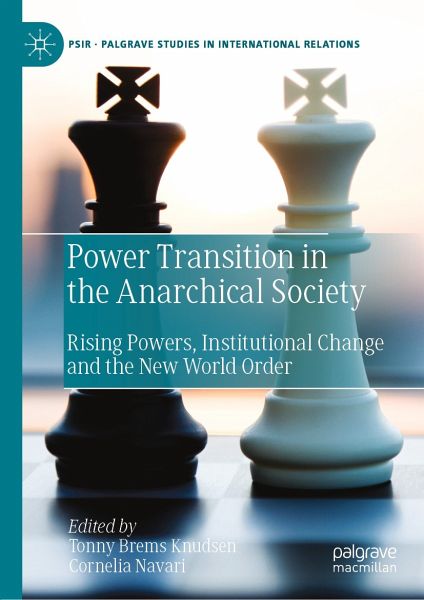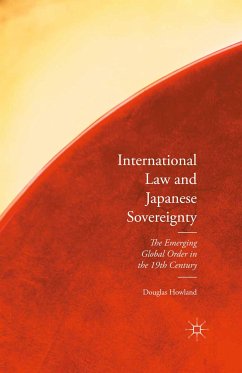
Power Transition in the Anarchical Society (eBook, PDF)
Rising Powers, Institutional Change and the New World Order
Redaktion: Knudsen, Tonny Brems; Navari, Cornelia
Versandkostenfrei!
Sofort per Download lieferbar
Statt: 139,09 €**
96,95 €
inkl. MwSt.
**Preis der gedruckten Ausgabe (Gebundenes Buch)
Alle Infos zum eBook verschenkenWeitere Ausgaben:

PAYBACK Punkte
48 °P sammeln!
This book examines the ongoing power transition and its ramifications for world order from an international society perspective. In that perspective, the outcome of big changes in the distribution of power is a matter of socialization rather than structural determination or the resilience of the so-called Liberal world order. Consequently, the key question of this book is how the ongoing power transition affects, and is affected by, the social institutions of world order including sovereignty, the balance of power, international law, diplomacy, trade, humanitarian intervention, national self-d...
This book examines the ongoing power transition and its ramifications for world order from an international society perspective. In that perspective, the outcome of big changes in the distribution of power is a matter of socialization rather than structural determination or the resilience of the so-called Liberal world order. Consequently, the key question of this book is how the ongoing power transition affects, and is affected by, the social institutions of world order including sovereignty, the balance of power, international law, diplomacy, trade, humanitarian intervention, national self-determination, and environmental stewardship. The guiding theoretical assumption of the book is that power transition stimulates fundamental institutional change rather than major conflict or a breakdown of international order, while international organizations are key arenas for the realization and negotiation of such changes, not the victims of hegemonic retreat. The argument is pursued in sections on rising and declining powers (Anglo-America, Russia, China and the EU, among others), consequences for the fundamental social institutions and changes in international organizations, globally and regionally. In combination, the chapters reveal the contours of the coming world order.
Dieser Download kann aus rechtlichen Gründen nur mit Rechnungsadresse in A, B, BG, CY, CZ, D, DK, EW, E, FIN, F, GR, HR, H, IRL, I, LT, L, LR, M, NL, PL, P, R, S, SLO, SK ausgeliefert werden.












